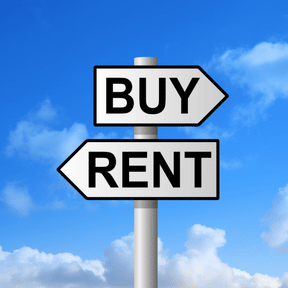
To rent or to buy? That is the question.
When mortgage rates were rock bottom during the COVID-19 pandemic, it was easy to argue the benefits of owning a home versus renting. In the past year, gas and grocery prices have risen while surging inflation has raised mortgage rates. As rates rise, renters now seem to have the advantage — saving hundreds of dollars every month in comparison to home owners. But despite increasing mortgage rates, many people still dream of their own home. North Peace Savings & Credit Union breaks down the advantages and disadvantages of this critical lifestyle question: should I rent, or should I buy?
ADVANTAGES OF RENTING
•As a renter, your monthly expenses are predictable and, in the Fort St. John region, rent is cheap, certainly in comparison to big urban centres like Vancouver.
• Renting allows you to be mobile; you can move as soon as your lease is up or you give one month’s notice. You have the freedom to move anywhere in the country for a new job or to continue your post-secondary education.
• As a renter, you won’t be spending weekends on DIY home projects, nor will you pay monthly maintenance. That’s the responsibility of the landlord or property manager.
• The disposable income that a renter saves in comparison to homeowners can be invested in in GICs, stocks and bonds. This may well end up being equal to the equity homeowners have after paying off their mortgage.
•Renters can invest the money they would have spent on a down payment, monthly mortgage, maintenance payments and property taxes on a start-up business.
DISADVANTAGES OF RENTING
•The landlord may sell or renovate, leaving you scrambling to find new digs.
•Rent is going up. Due to the increased cost of borrowing, would-be buyers can’t get loans due to higher mortgage qualifying rates. This has increased competition for rental units.
ADVANTAGES OF BUYING
•Homeownership is a straight-forward, long-term investment whereby you build equity while paying off your mortgage.
•High borrowing costs resulted in a drop in home prices by 18.5 percent from February to June, according to the Canadian Real Estate Association.
•You can design, renovate and accessorize your home according to your own tastes.
•A home is a stable place to raise a family.
•A homeowner can make a significant amount of money if house prices rise.
DISADVANTAGES OF BUYING
•A homeowner pays “unrecoverable costs:” property tax, maintenance and the cost of credit, which is the cost of borrowing money. This amounts to about five percent yearly of the total cost of a home.
•Even if your home is paid off, you’ll always face monthly maintenance costs and property taxes.
•With rising interest rates, those who have variable loans or mortgages that are coming up for renewal will face higher monthly costs.
•If your career demands that you have to move outside the community, you’ll face myriad transaction costs associated with selling, from real estate commissions to capital gains and moving costs.
•A homeowner can lose a significant amount of money if house prices fall.
Want help navigating a plan that works for you? Talk to one of our North Peace Savings & Credit Union Advisors today! 1-877-787-0361